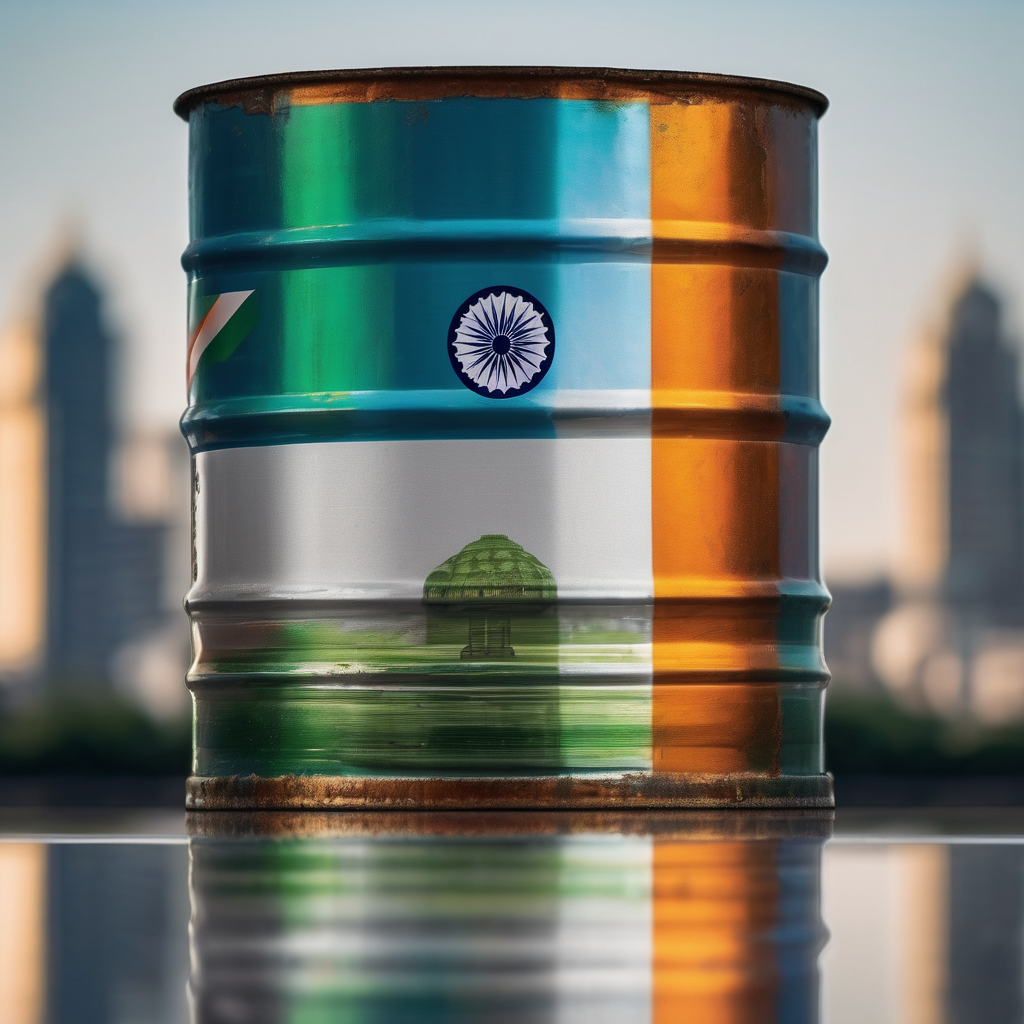The Indian government has responded cautiously to President Trump’s assertion that Prime Minister Narendra Modi would cease purchasing Russian oil, positioning itself to maintain a constructive dialogue with the United States amid ongoing trade tensions. During a news conference, India’s foreign ministry refrained from outlining any commitment from Modi, opting instead to emphasize India’s long-standing approach of sourcing oil from a diverse range of suppliers.
This measured reply indicates India’s strategy to navigate the complex trade relationship with the U.S., especially as it grapples with significant tariffs imposed by the Trump administration. In August, the U.S. enacted a 25 percent tariff on Indian imports, aggravating the economic ties that have been carefully developed over the past two decades.
On Wednesday, Trump claimed that Modi assured him that India would halt its purchases of Russian oil, a point the Indian government did not affirm. Instead, Randhir Jaiswal, the spokesman for the foreign ministry, stated that India’s imports are dictated by the necessities of safeguarding consumer interests in a “volatile energy scenario,” while noting India’s continuous efforts to diversify its oil sources—including an increase in purchases from the U.S.
The relationship between Trump and Modi has faced challenges in recent months, particularly after India disputed Trump’s claims of mediating a cease-fire between India and Pakistan, which raised political sensitivities domestically for Modi. Moreover, any suggestion that India would yield to U.S. pressures could jeopardize Modi’s strongman reputation at home.
Experts have suggested that Trump’s public approach could undermine India’s willingness to cooperate. Harsh V. Pant, a professor of international relations, pointed out that overt pressure from the U.S. could backfire, highlighting the importance of subtle diplomacy in matters of international relations.
In recent weeks, both nations have adopted a strategy of quiet negotiation, signaling a desire to mend ties. Modi’s prompt congratulatory call to Trump for facilitating a hostage exchange deal between Israel and Hamas reflects an ongoing commitment to dialogue. Additionally, the recent visit by Sergio Gor, the newly confirmed U.S. ambassador to India, for preliminary discussions with Indian leadership, underscores the mutual interest in resolving outstanding trade issues.
India’s foreign minister S. Jaishankar indicated a desire to prevent trade disagreements from overshadowing the broader U.S.-India relationship, while also addressing the perception of U.S. remarks that may come across as disrespectful. Sanjeev Sanyal from Modi’s economic advisory team remarked on India’s resolve to prioritize its own interests in the face of external pressures.
Overall, both nations appear to be taking steps towards constructive engagement in resolving trade disputes while carefully managing sensitive political dynamics. As they navigate these complex issues, the opportunity for stronger ties remains, highlighting a hope for a more balanced partnership moving forward.
